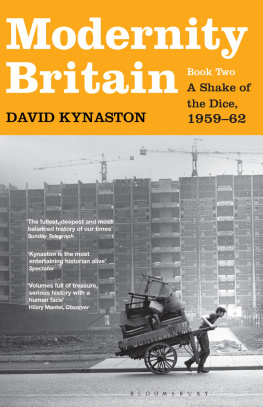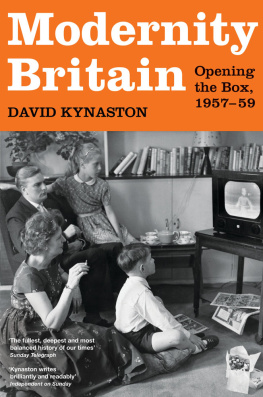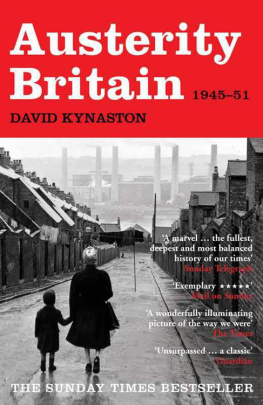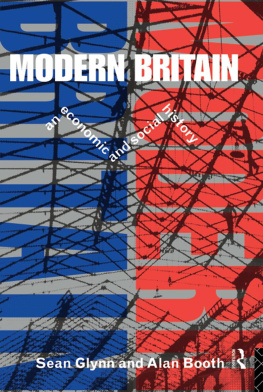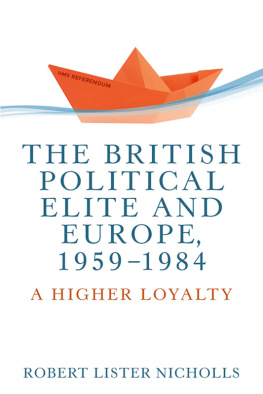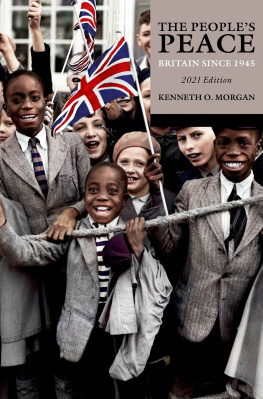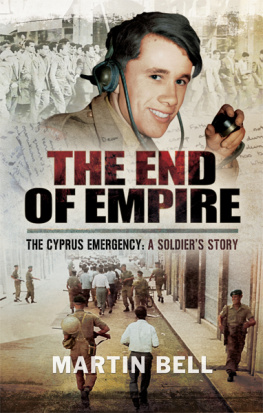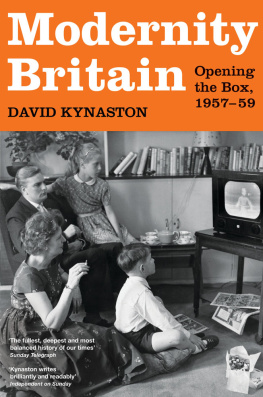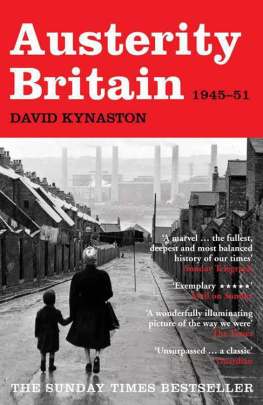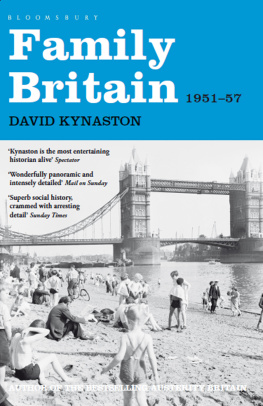The following kindly gave me permission to reproduce copyright material: Evelyn Abrams (Mark Abrams); Lady Diana Baer (Mollie Panter-Downes); BBC Written Archives Centre (BBC copyright material reproduced courtesy of the British Broadcasting Corporation. BBC. All rights reserved); Michael Chaplin (Sid Chaplin); Rupert Christiansen; Kate Clarke (Kate Paul); Jonathan Clowes Ltd. (extract from Walking in the Shade by Doris Lessing, copyright Doris Lessing 1997); John Cousins (Frank Cousins); Virginia Crossman (Richard Crossman); Curtis Brown Group Ltd, London (on behalf of the Trustees of the Mass-Observation Archive, copyright Trustees of the Mass-Observation Archive); Stephen Dixon; Faber and Faber Ltd (extract from Untold Stories by Alan Bennett; extracts from Selected Letters 19401985 and Letters to Monica by Philip Larkin, edited by Anthony Thwaite; extract from Letters Home by Sylvia Plath, edited by Aurelia Schober Plath); Merryn Hemp (Raymond Williams); Pamela Hendicott and Ione Lee (Judy Haines); Islington Local History Centre (Gladys Langford); The Trustees of the Harold Macmillan Book Trust (extracts from the late Harold Macmillans diaries); Duncan Marlor (May Marlor); Sally Muggeridge and the Malcolm Muggeridge Society (Malcolm Muggeridge); Allan Preston (Kenneth Preston); Random House Childrens Books (extracts from My Secret Diary by Jacqueline Wilson); The Random House Group Limited (extracts from Years of Hope by Tony Benn, edited by Ruth Winstone, published by Hutchinson; extracts from Dear Tom by Tom Courtenay, published by Doubleday; extract from This Boy by Alan Johnson, published by Bantam Press; extract from The Changing Forest by Dennis Potter, published by Secker & Warburg); Marian Ray and Robin Raynham (Marian Raynham); Rogers, Coleridge and White Ltd (extract from Everything to Lose: Diaries 1945-60 by Frances Partridge, copyright Frances Partridge 1985); David Selbourne (Hugh Selbourne); Tanya Stobbs (extract from a letter by Sylvia Townsend Warner taken from Letters , edited by William Maxwell); Roxana and Matthew Tynan (extracts from Observer writings by Kenneth Tynan); Lewis and Michael Willmott (Phyllis Willmott); Toby Young (Michael Young).
Many people helped to make this book happen, including: Mark Aston; Libby Bishop; Sophie Bridges; Mike Burns; Nigel Cochrane; James Codd; Nick Corbo-Stuart; Fiona Courage; Jill Faux; Helen Ford; John Gold; Ali Haggett; Adam Harwood; Helen Langley; Rose Lock; Sandy Macmillan; Duncan Marlor; Louise North; Jonathan Oates; Stanley Page; Jessica Scantlebury; Alan Simmonds; John Southall; Richard Thorpe; Lisa Towner; Andy Ward; Karen Watson; Annalisa Zisman (Back to Balance). I am grateful to all concerned.
There are others with a more intimate involvement to whom I am especially grateful: Andrea Belloli; Catherine Best; Patric Dickinson; Juliet Gardiner; David Milner; Christopher Phipps; Dil Porter; Harry Ricketts; Matt Turner; David Warren. I am grateful also to my son George and my wife Lucy for the research assistance they kindly provided at the British Newspaper Library at Colindale especially by Lucy during those rather frantic weeks before the librarys closure in November 2013.
At Bloomsbury, my editor Bill Swainson and his colleague Nick Humphrey, assisted by Imogen Corke, were always willing to go the extra mile to help get this over the line: thank you.
Particular thanks go to Amanda Howard (Superscript Editorial Services), who as ever transcribed my tapes with a wonderful mixture of speed, accuracy and discernment. It would have been impossible to meet the tight schedule without her contribution.
My sadness is that two people are not alive to see this book. Phyllis Willmott became a friend as well as an invaluable resource after I met her in 2002, and I miss her greatly; while the death this spring of Deborah Rogers (my literary agent since 1984) has left a huge hole in many lives, and I remember with gratitude her belief in my project and her determination to see it launched.
Finally, to my largest debt. In July 2012 I had just drafted a paragraph in chapter two (as it happens, about the town where I was born) when I was diagnosed with cancer. In the event, it turned out to be a non-Hodgkins lymphoma that was treatable; but the rest of this book would not have been written without the care and dedication of Dr Ruth Pettengell and all her colleagues at St Georges Hospital, Tooting.
New Malden
June 2014
A few weeks later, one of the emblematic books of the era appeared: Anthony Sampsons Anatomy of Britain . Britain, argued Sampson in his closing pages, had been through two distinct phases since the war, the first of them essentially static: The social revolution of 1945, though profound, took ten years to show its effects on spending. Londons skyline, broken by bomb damage, remained almost unchanged. Newspapers rationed their newsprint. The BBC was unchallenged... The second phase, he went on, started in 1957: Within two years, the credit squeeze ended, skyscrapers rushed up, supermarkets spread over cities, newspapers became fatter or died, commercial television began making millions, shops, airlines, even coal had to fight for their lives. After the big sleep many people welcomed any novelty... Not everyone, it is clear, was quite so welcoming, but about the overwhelming fact of change in the late 1950s going into the early 1960s, and the broad post-war periodisation, Sampson from his 1962 vantage point was surely correct. What, though, was now the most propitious way ahead? Sampson had no doubts about where (so far) there had been a seriously damaging absence of change: The old privileged values of aristocracy, public schools and Oxbridge which still dominate government today have failed to provide the stimulus, the purposive policies and the keen eye on the future which Britain is looking for, and must have... The old fabric of the British governing class, while keeping its social and political hold, has failed to accommodate or analyse the vast forces of science, education or social change which (whether they like it or not) are changing the face of the country. It was time, in short, for tomorrows new men, and perhaps even the odd new woman, to be allowed to step up to the plate. Or, put another way, modernity Britain, yes; but also at long last opportunity Britain.
Austerity Britain
19451951
David Kynastons landmark post-war history, Austerity Britain 194551 presents a breathtaking portrait of our nation through eyewitness accounts, newspapers of the time and previously unpublished diaries. Drawing on the everyday experiences of people from all walks of life, Austerity Britain covers the length and breadth of the country to tell its story. This is an unsurpassed social history: intensely evocative to those who were there and eye-opening for their children and grandchildren.
This book is both a history and a triumphant work of art Observer
Even readers who can remember the years Kynaston writes about will find they are continually surprised by the richness and diversity of his material mouth-watering John Carey, Sunday Times
Austerity Britain kicks off a series by the same author that will end in 1979, with the election of Margaret Thatcher. What a treat we have in store ***** Craig Brown, Mail on Sunday Book of the Week
This is a classic; buy at least three copies one for yourself and two to give to friends and family Guardian
A cracking read evocative and entertaining Daily Telegraph
ISBN: 978 0 7475 9923 4 / Paperback / 12.99
Tales of a New Jerusalem is a projected sequence of books about Britain between 1945 and 1979. The first two books, A World to Build and Smoke in the Valley , are gathered together in the volume Austerity Britain ; the next two books, The Certainties of Place and A Thicker Cut , in the volume Family Britain . The fifth book in the sequence is Opening the Box , now complemented by the sixth book, A Shake of the Dice , together comprising the volume Modernity Britain and between them covering the years 1957 to 1962.
Next page
